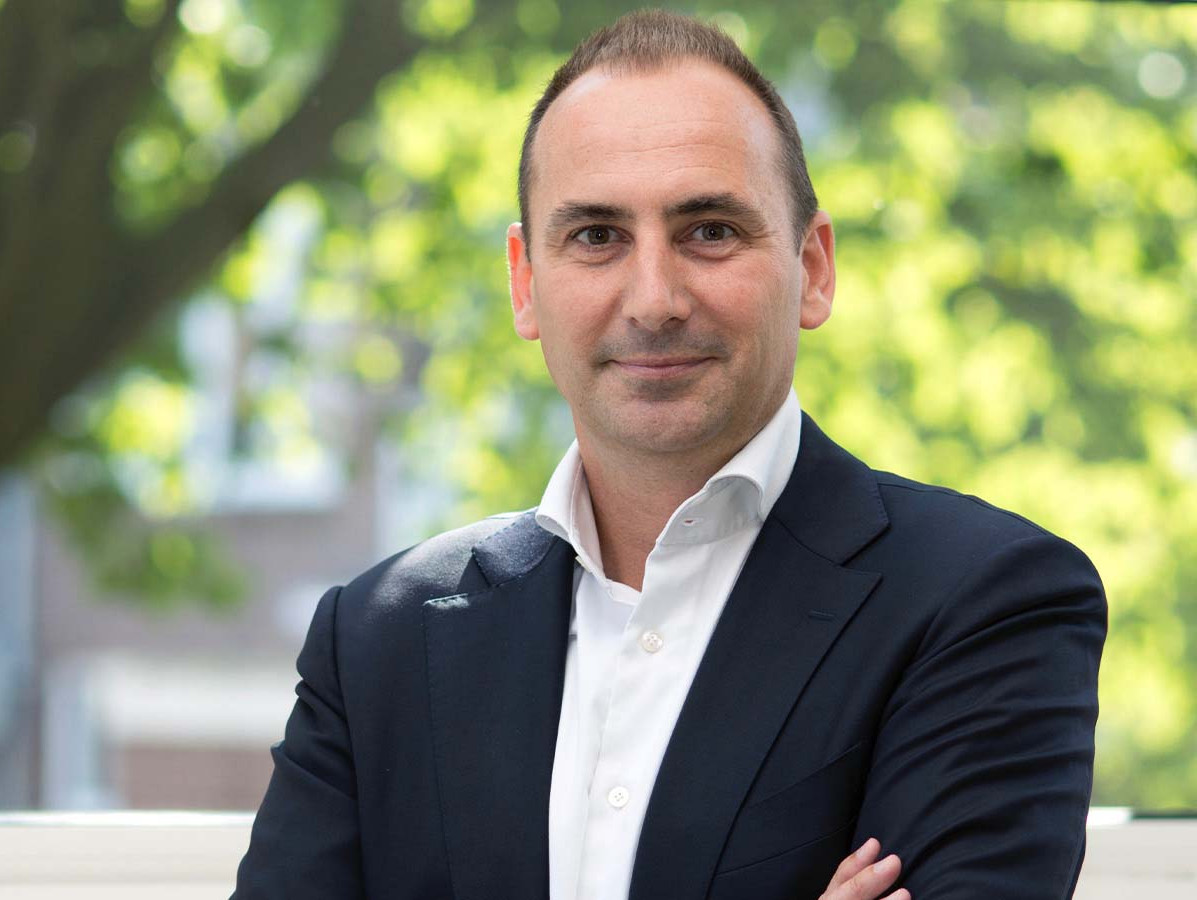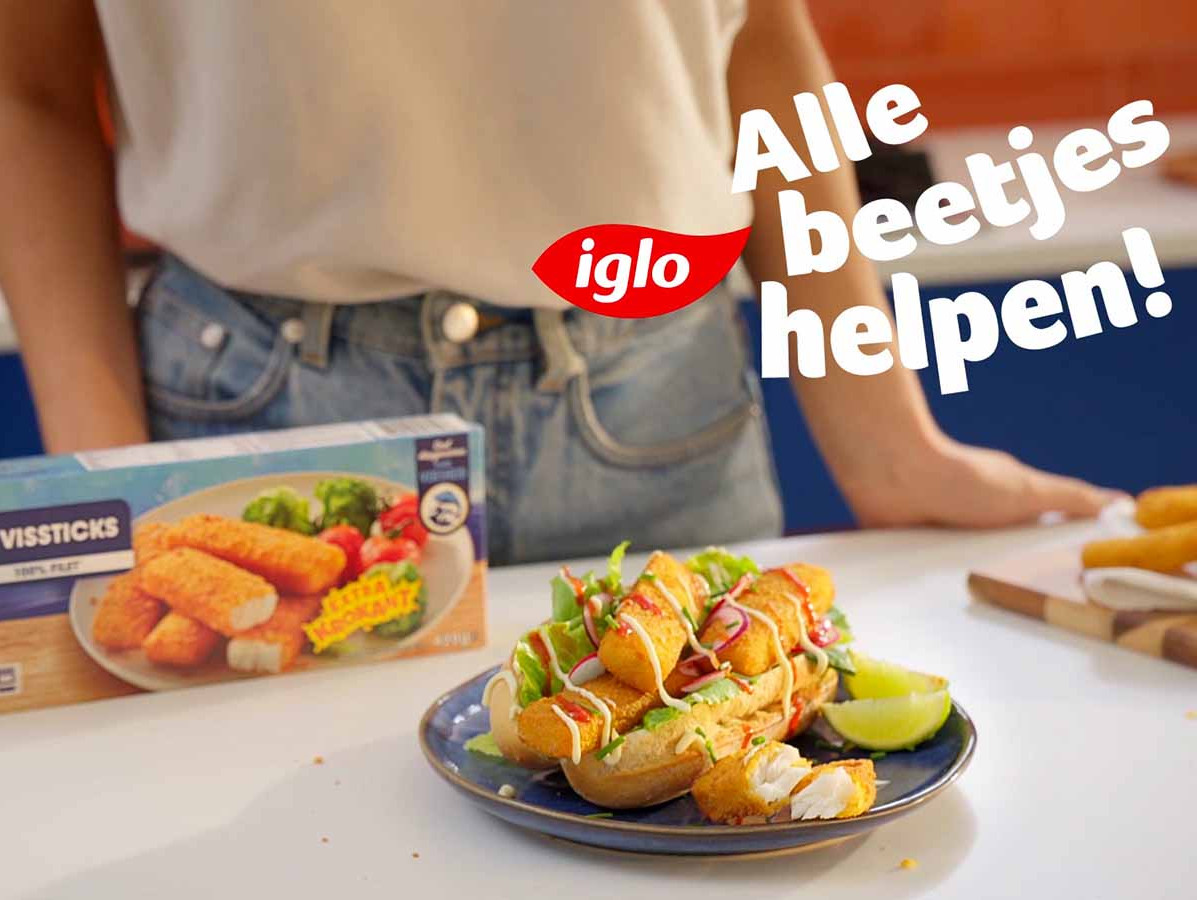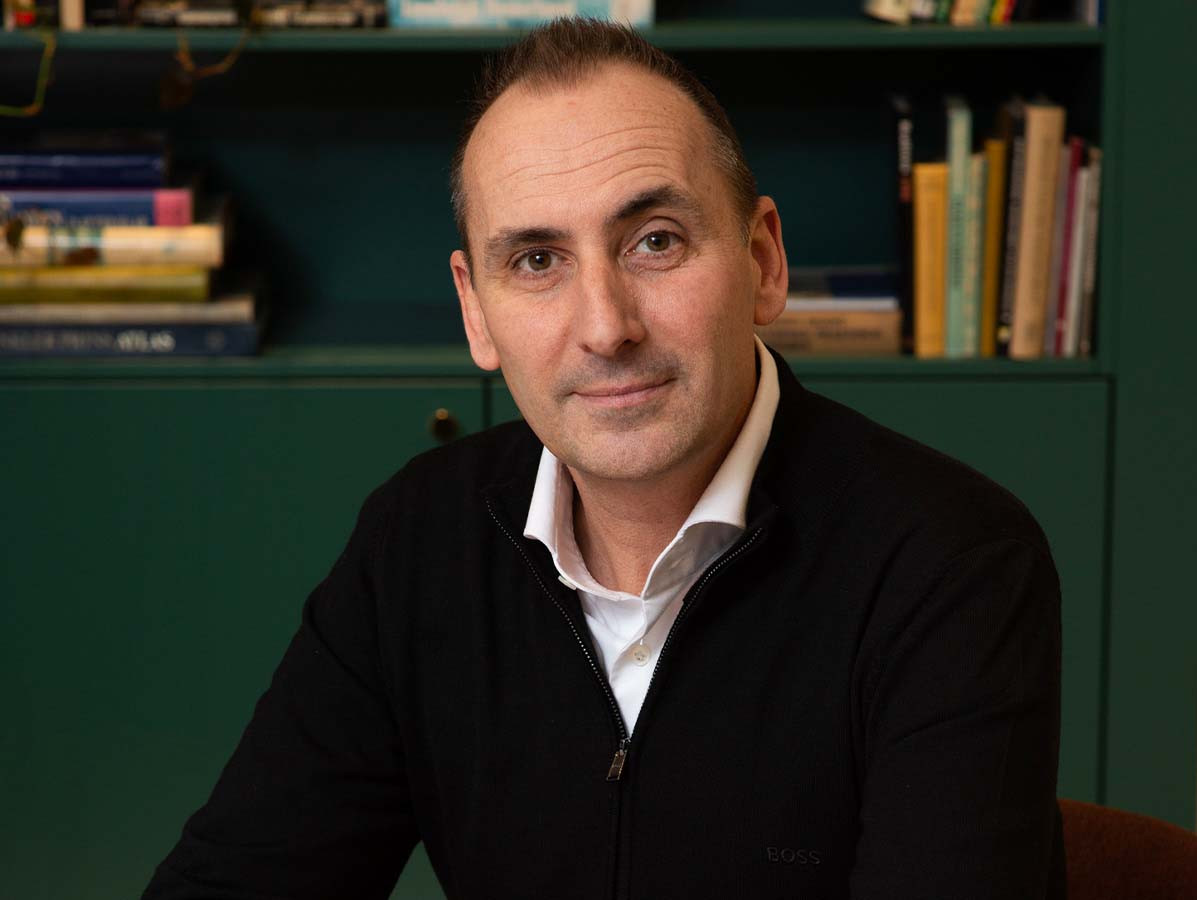
Jorg Brouwer has only been in the position of general manager Iglo Netherlands for a few months. Even so, he has a plan. Brouwer - an FMCG beast at heart - has been with parent company Nomad Foods for about five years and also spent his formative years at Unilever. His mission? "I want to work with the team and our customers to transform the frozen food aisle in the Netherlands."
"We are in it for the long term. Our CEO, Stefan Descheemaeker, has invested in Nomad himself and that says a lot. Between Unilever and Nomad, Iglo was owned by private equity for many years, but we are now investing in people, brands, sustainability and better products again. One of our values is: 'Always striving'. We're not the best yet, but we do our very best every day to do a little bit better. I am very happy with the Iglo team in the Netherlands. A good team with a lot of energy to achieve growth of the frozen category."
"It's in the culture. When people do a good job, we want to acknowledge that. But afterwards we do give constructive feedback. How can we do even better? We are not easily satisfied with a good result, to be frank. Since 2015, we have grown year on year and we work hard for that."
"I find it hard to explain. Look, almost everyone has a freezer (98 pct, ed.) and half of consumers buy an Iglo product at least once a year. Hopeful facts. But if you look at the frozen food share of Dutch retail compared to other countries, it's a bit of a shock. In our country it is 4 percent, while in the UK it is about 10 percent. In Germany even 13 percent! We are going to make that 4 percent bigger in the Netherlands, but that is not something you do overnight. It's a transformation that takes a long time."

"We are thinking hard about that now. Either way, we are going to invest heavily in communication, in campaigns to get the message across. The link to sustainability is obvious. We can waste 47.5 percent less by using frozen foods. And deep-freezing also connects perfectly with health. By quickly freezing vegetables, the nutritional value is preserved. Often even better than fresh vegetables. External research on the entire life cycle of our own products also shows that emissions from frozen are lower than from chilled and long-life.
"Yes, we really need to invest, budgets are going up. We recently launched the 'Every little bit helps' campaign. Perhaps the backbone of our communication is the collaboration with the RTL program Eigen Huis & Tuin: Lekker Leven, where television chef Hugo Kennis provides inspiration by putting healthy, quick meals on the table using Iglo products. It goes without saying that we will be firmly committed to socials and, finally, our own recipe database is also a key focus for communication."
"Iglo is the inventor of the Flash Freezing technique (1922, ed.), still the foundation of frozen food in the supermarket. This technique, for example, takes spinach from 100 to -18 degrees in six minutes to preserve its nutritional values optimally."
"Together with R&D, we are constantly working to improve frozen food technology to provide the best taste and quality. But product development is just as much innovation. And then you have to look at how consumers use products. How do they cook? That's why we are developing products specifically for the airfryer." Also, we are working hard on 'something' that will hit the shelves at the end of this year, so keep your eyes open!"
"Regardless of the crisis, we would have gone down that route long ago. What you do see now is that people are much more aware of what they can save themselves, for example by reducing food waste. The frozen food category can contribute to and benefit from that."
"Yes more and more, it's on my agenda! This is also exactly the reason I joined the board of the VriesVers Platform. (The goal of the VriesVers Platform is to raise the image of fresh frozen products so that more fresh frozen products are sold, ed.) I firmly believe that we are only at the beginning of the journey. It may take one year, three years or five years, but either way it responds to a consumer need."

"Again, I have to say that we can't go overnight. It's not like we already have a ready-made concept lying around. But we are doing research. I think cooperation with retail is very important in this. And we have to learn from successes achieved in other countries."
"That's playing chess on several boards. From small improvements to very high ambitions. For example, we have taken a lot of air out of the packaging. That makes a big difference in the volume to be transported. As for diversification of fish, Iglo is a co-founder of MSC (sustainable fishing, ed.), and we also want to lead the way in farmed fish. One step more ambitious; together with the company BlueNalu we are looking at cell-based fish ('cultured fish', ed.). All paths are toward quality and sustainability."
"We want to be part of the greening process, which is why we throttle more vegetarian. We launched a product with quinoa and bulgur under the brand line 'Groente-Idee'. It did very well in Germany, but was not at all successful in the Netherlands. Too niche... We Dutch are a down-to-earth people. We now have ravioli with vegetables and that's a dish that fits much better here."
"I like that idea. But we also realize that the captain is still super-iconic. The campaign has been running for 60 years! So we'll keep that in there anyway to support sustainable fish consumption. As far as the veggie piece is concerned, we very much believe in the chosen path that includes Eigen Huis & Tuin: Lekker Leven, recipes and the socials."
Source: Vakblad Voedingsindustrie 2023